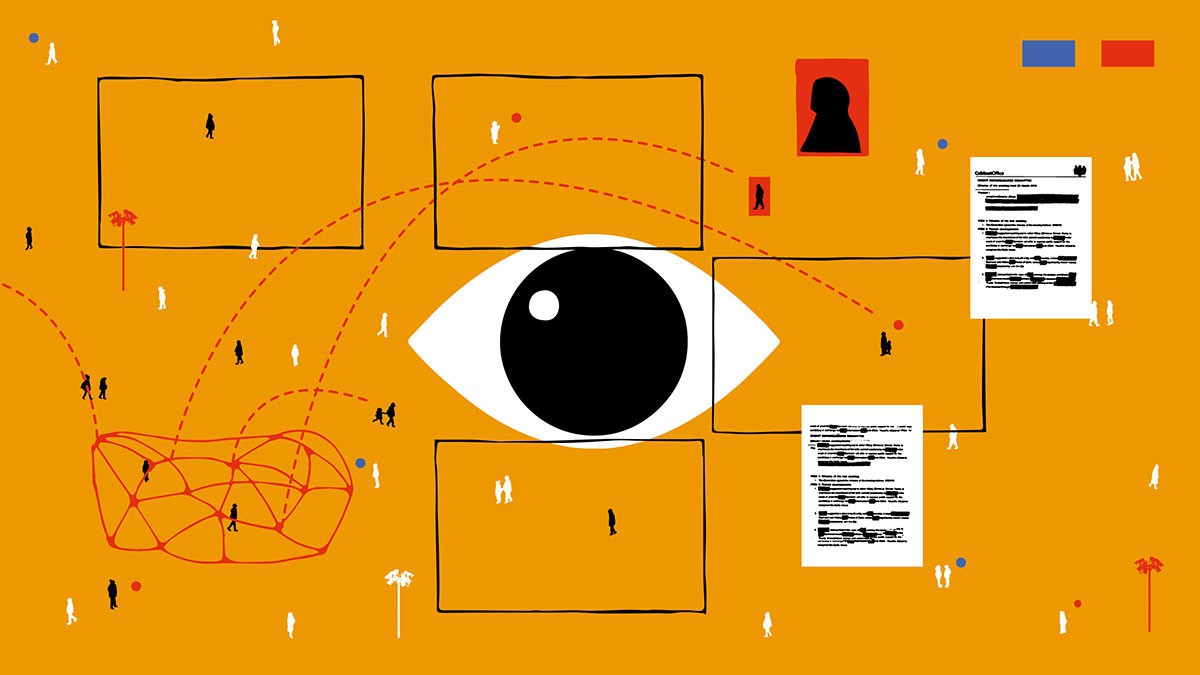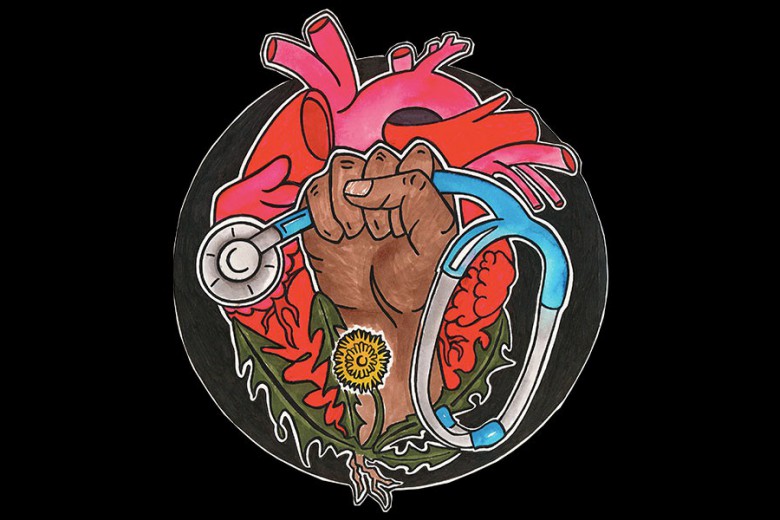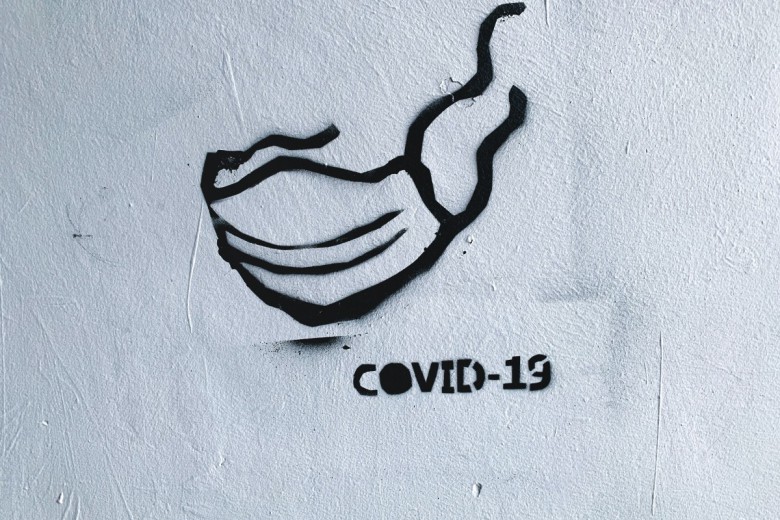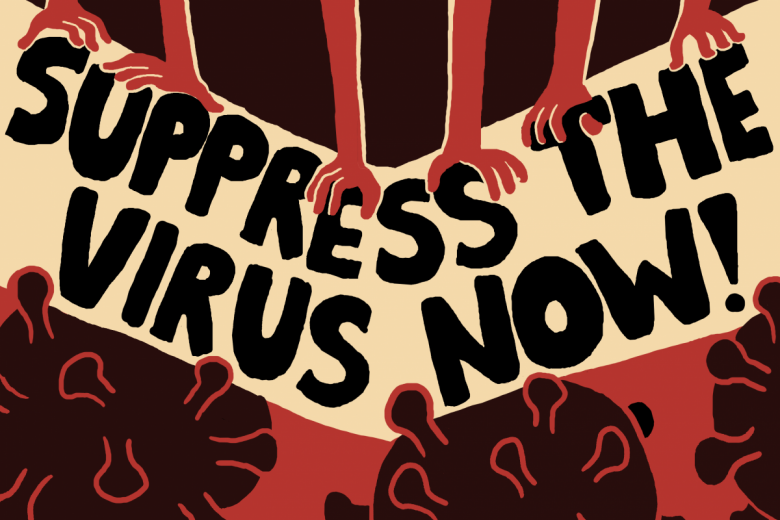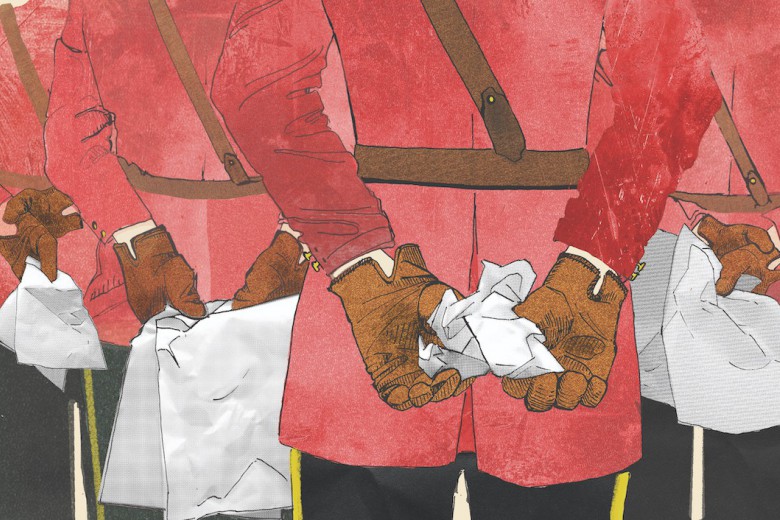“Let’s stop calling it community policing. It’s just policing.”
This is what Desmond Cole tells me over the phone. I recently called Cole in advance of his planned visit to the Kitchener Public Library to promote his new book, The Skin We’re In. Unfortunately, like many other events here and around the world, his visit has been postponed in response to the COVID-19 pandemic.
One reason that the Region of Waterloo, where I live, is on Cole's radar is the fact that the Waterloo Regional Police Services (WRPS) took on the investigation of police brutality against Dafonte Miller, a young Black person who was assaulted by an off-duty Toronto police officer and the officer’s brother in 2016. Despite repeated requests from Cole, the WRPS have yet to publicly release their report on this case.
What is “community policing”?
Cole, who was catapulted to prominence in 2015 after publishing an award-winning piece in Toronto Life about police carding, has written a vitally important book about systemic inequality in Canada. He dedicates an entire chapter of The Skin We’re In to community policing, raising a number of questions: What information are police collecting through these programs? Who are they collecting information about? How long is this information kept? And why?
The WRPS webpage states that they “believe strongly in community policing [...] in the many diverse and vibrant neighbourhoods of Waterloo Region.” So, what do they mean by “community policing”? And which neighbourhoods are they referring to?
In Waterloo Region, much like other regions across Canada, community policing is tricky to pin down. This is by design. The official definition is that it is an approach that allows police officers to work within communities, and to thereby reduce crime through relationship-building with residents. In reality, it is a rhetorical device that masks various methods of permanent police surveillance and control – like neighbourhood watch programs, school resource officers (SROs), carding, and putting plain-clothes officers on city committees and taskforces – often targeting racialized and poor communities.
In Waterloo Region, much like other regions across Canada, community policing is tricky to pin down. This is by design.
One example is the former Chicopee Outreach Program (COP), co-founded by Berry Vrbanovic (at the time a City of Kitchener councillor, now the Mayor of Kitchener) in 1998, whose stated goal was “linking at-risk youth with police, fire and community mentors.” The program was launched after an incident where police were alerted that a young man was headed to the Centreville-Chicopee Community Centre with a handgun. The current iteration of this program is called the City of Kitchener’s Community Outreach Program. The program targets youth ages 11 to 15 in the Centreville Chicopee, Kingsdale, and Mill-Courtland neighbourhoods – all areas with a high percentage of Black, brown, and poor residents. Youth participate in activities and a three-day overnight camp in the summer alongside police officers and firefighters.
Programs like this exist all across Canada. ProAction Cops and Kids, an Ontario-wide initiative launched in 1991, is one prominent community policing program that Cole is highly critical of. Cole questions the purpose and outcomes of such programs that place many poor, racialized youth in contact with police.
He paints a picture: “Imagine an officer were to see two Black youth, both of them 14 years old, in grade nine. One of them has a gram of weed. The other youth hands him a $10 bill for that gram. The officer sees the whole thing go down. What do you think that police officer is going to do?”
I speculated that the officer would likely take some action to address what he witnessed.
“That’s right,” says Cole. “Most likely, especially if there is an escalation of any kind, they’re going to arrest one or both of those youth.”
“Police have one job they’re trained to do,” he continues, “and that’s to enforce law and order.”
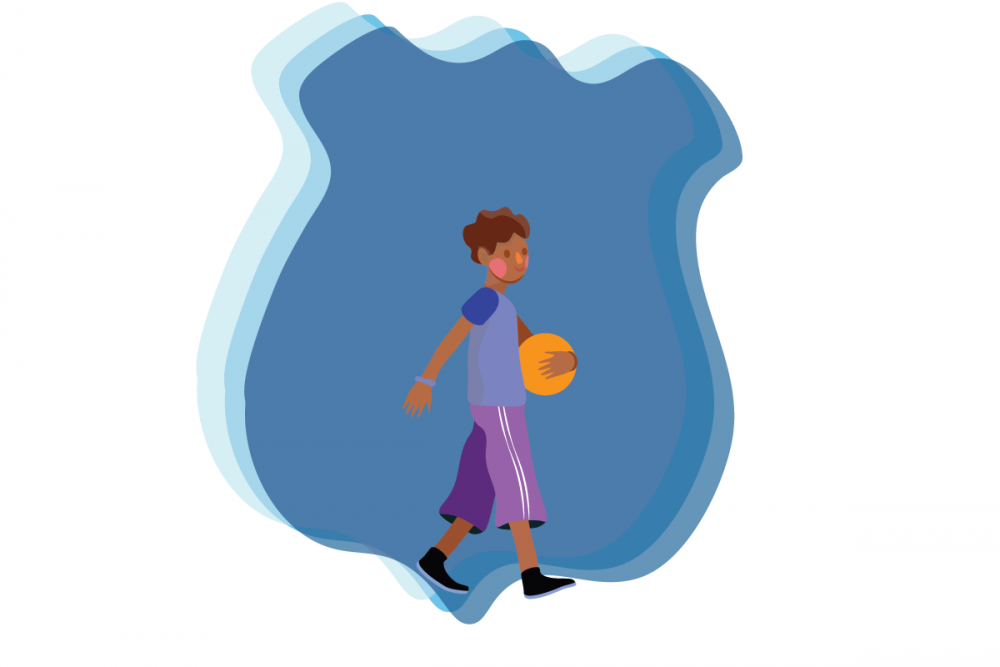
We know that this enforcement is applied disproportionately – a recent Toronto Star study found that Black people with no history of criminal convictions were three times more likely to be arrested for cannabis possession despite similar rates of cannabis use to white people. As Cole points out in his book, the extent of police surveillance and documentation through these programs is unclear. Why do the police get unfettered access to youth through these programs, and how many people with decision-making powers are keen for these interactions, despite the risks they may pose for racialized kids?
If the goal of community policing is truly to build relationships and to reduce the behaviour that hurts kids and their communities, wouldn’t it make more sense to use an approach that avoids criminalization? For example, by instead providing programming with social workers, recreation therapists, and youth workers, all of whom have training in how to work with children and youth.
I spoke to two residents of Kitchener’s Chandler-Mowat and Centreville-Chicopee neighbourhoods – one person of East African background and the other Rohingya – who used to attend a youth drop-in program I worked at years ago. They recalled the times cops would come into the community centres, their utility belts jangling awkwardly as they tried to play basketball and memorize everyone’s names. They told me that they still see police officers patrol their block nearly every day, sometimes interacting with them. These residents shrugged at how normalized it was, but when I asked if they would go on record they hesitated. They asked not to be quoted or named, telling me they felt scared of what might happen to them if they spoke out against the police.
“Police have one job they’re trained to do,” he continues, “and that’s to enforce law and order.”
Their fear is one I share – the police do not deserve or warrant our trust. In Waterloo Region, the police have yet to take definitive steps to remedy their disproportionate carding of Black people, and they have not done enough to address the high number of sexual assault complaints against their officers. This past month, the WRPS were forced to admit that they had been using Clearview AI – a facial recognition technology that privacy experts are seriously concerned may misidentify Black and Asian faces – much longer than they originally had admitted to. Despite the fact that any one of these serious issues would likely disqualify other organizations from receiving funding, the 2020 WRPS budget now totals $181 million – a number that has steadily increased since 2014.
To paraphrase the words of Sabrina “Butterfly” Gopaul, an organizer and activist in Toronto who Cole quotes in his book: What if these resources were dedicated to mediation, restorative justice, youth workers, community workers, educators, sexual health workers, jobs for our young people?
Policing the pandemic
As society restructures in response to the global COVID-19 pandemic, laws designed to punish those who are “endangering public health” will land heavily on marginalized communities. In a Facebook group called CareMongering-KW: Kitchener-Waterloo Community Response to COVID 19, someone asked how to report kids from a townhouse complex playing together. The poster suggested that “sending a police car over with info and a little authority might help.” Many townhouse complexes in Kitchener-Waterloo are populated with low-income, racialized families. While group moderators eventually deleted the post, clarifying that calling the police is not “caremongering,” this scenario is one that will keep repeating itself across Canada (I already saw a similar post in a Montreal caremongering Facebook group). Having the police called on them for reading or eating lunch is already something that Black people are all too familiar with.
There is a long history of (mostly white) people who deputize themselves in the name of public health and social responsibility. As activist and poet El Jones points out, calling law enforcement on people who are not socially isolating (many of whom may be disabled, racialized, and unhoused) does not just lack compassion and understanding, it’s also a less effective public health response that may worsen the crisis: “For communities that have long faced neglect, or worse, abuse, from authorities we must be careful that a heavy-handed response does not re-victimize and scapegoat the poorest and least powerful among us.”
There is a long history of (mostly white) people who deputize themselves in the name of public health and social responsibility.
As Alexander McLelland writes in NOW Toronto, drawing on the history of the HIV epidemic, “criminalizing a virus discourages testing and drives people away from seeking health care.” He adds that across the country, provinces are increasing the powers that police have during the pandemic. In Ontario, Alberta, and British Columbia, governments have declared states of emergency, which allow for increased police power. Quebec, too, has increased police powers, deploying officers to public health offices. And in Nova Scotia, Quebec, and Toronto, police have been empowered to enforce self-isolation and physical distancing with fines for individuals starting at $1,000. Cities like London, Ontario, have partnered with police to introduce “snitch lines” for people to report those who aren't following the rules around COVID-19. People have already been arrested in Quebec City and Nova Scotia for leaving quarantine.
The City of Kitchener let the police into one neighbourhood to run a program some 20 years ago. The police never left and have since expanded their surveillance program to other marginalized communities. Can we really trust governments to rescind increased police powers and dismantle increased surveillance infrastructure after the pandemic ends? The police have never kept Black, Indigenous, and poor people safe, and that remains true in these Covidian times. We must be wary of increasing police powers during the crisis, lest the police embed themselves even deeper in our communities under the guise of “community policing” after the dust settles.

